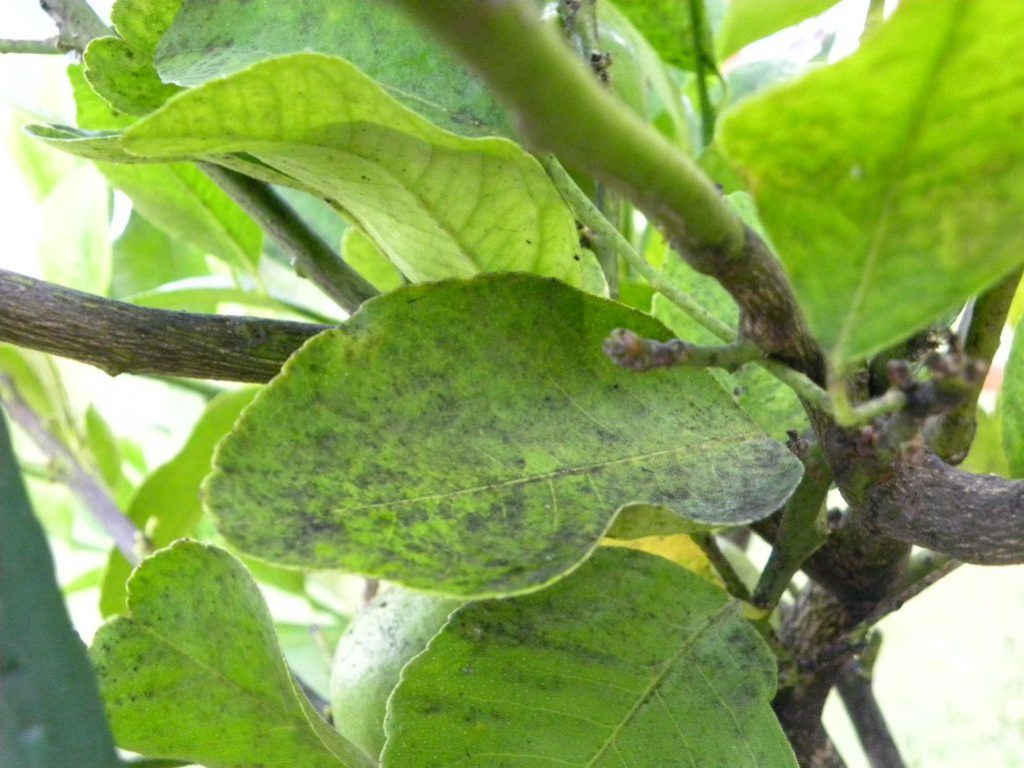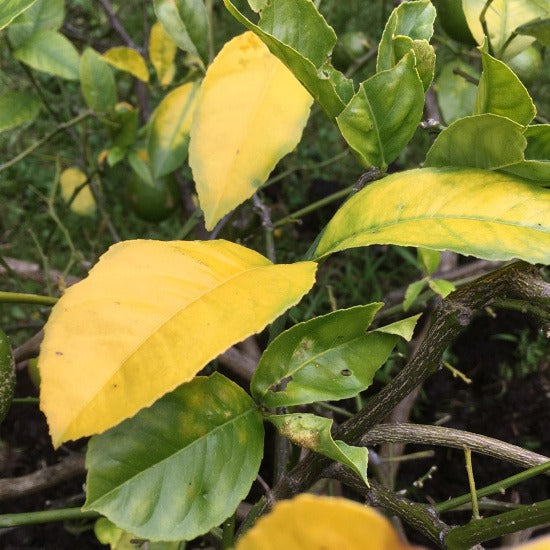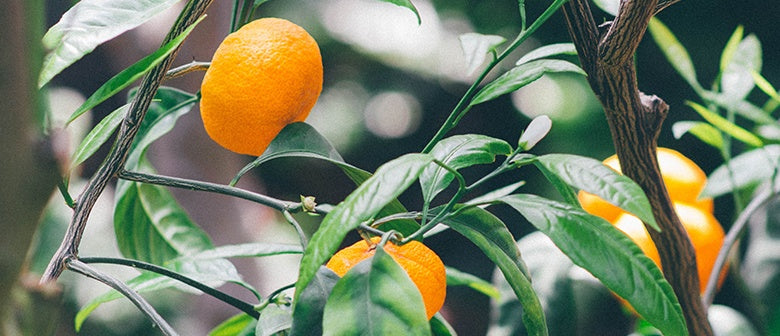FAQs citrus
It wouldn’t be a kiwi garden without the iconic citrus tree, however every now and then the trusty citrus tree can get in to some problems. Our Palmers gardening forum is full of questions about citrus, here are some of the most frequently asked questions, and their answers below:
April asked: When is the best time of year to plant Lemon Trees and Lime trees? I’ve been told to plant them as far away from each other as possible?
Our answer: The best time to plant citrus trees is either spring or autumn, when growth is happening. If you plant too late in summer it may be too hot and the plant may suffer if it is not watered enough. Try to avoid winter planting with citrus as they can be frost intolerant.
Planting the citrus far apart usually only matters for the amount of seed within the fruit, it does not affect the fruit itself and you usually need them to be very far apart. Bees can fly quite a distance, so neighbours trees can even affect this.
Hazel asked: Suddenly I have no lemons or limes. Can I plant citrus that will fruit from now on to give me citrus longer?
Our answer: Most lemons and limes fruit in the winter time, however Meyer Lemon fruits for most of the year so it may be a good one to grow.
Oranges can be harvested from late spring to summer, Satsuma varieties of Mandarin can be harvested in winter while Encore can be harvested in spring and summer.
If you plant the winter fruiting varieties now you may get some fruit on your plants. It is advised to pick off most of the fruit in the first year to let the tree get nice and established, but it is up to you if you would like to get some fruit.
Rebecca asked: I have a few citrus plants that has black soot on the leaves, just wondering what I can do to treat it?
Our answer: The black soot that you see on the citrus is a sign that you have an infestation of insects. It is a type of fungus that grows on the sugary excretions of these insects. The insects could be either scale, whitefly or aphids or any other sap-sucking insect. The sooty mould itself is generally not a big problem but it is unsightly, the insect infestation will soon cause the plants to lose vigour.
Once you treat the plants for insects it should cure your problem, The sooty mould will soon subside.
Spray with an insecticide such as Grosafe Enspray 99 spraying oil. It is a certified organic spray. Mix the spray according to label instructions. Spray in the evening or early morning when it is not so hot. Spray the whole plants as best you can including as much as the undersides of leaves as you can get. Repeat the procedure in a few weeks time if needed.
This should fix the sooty mould issue!
Patricia asked: I bought a Yen Ben Lemon Tree 3 years ago and it has been doing really well. Unfortunately after all the rain we have had (it might not have anything to
do with it), the leaves at the top of the tree are curling inwards. Why would it do that and can I rectify it? I was so proud of how it has grown and would hate to lose it.
Our answer: You are absolutely right. When the leaves of a citrus tree curl inwards it usually has to do with extreme conditions such as drought, extreme cold or in your case probably being a bit waterlogged.
Other things to check for are insects such as aphids underneath the leaves, insects can cause leaves to curl. If there are insects present spray with an insecticide. A certified organic treatment such as Enspray 99 is best, spray in the evenings to avoid leaf burn and to keep our bee populations safe from harm. If you have another insecticide you normally use, by all means, use that if you would prefer.
If it is not an insect problem and the leaves do not come right once the tree has had time to dry out you may like to try spraying a liquid copper in case it has a fungal disease such as leaf curl. Spray copper again in autumn and winter to prevent fungal diseases from occurring. Remove any diseased leaves and branches. Keep the area clean and tidy.
Feed with a foliar spray to help the tree recover. Something such as Tui Seaweed Organic Plant Tonic. Do this regularly to give the tree some extra nutrition and to help it keep thriving.
Betty asked: Can you please advise if I should trim long shooting branches to the size if the rest of the tree? My lemon tree has a couple of long reaching young branches and the rest of the branches are all about the same smaller size.
Our answer: If the branches are coming from the base of the plant or quite low, they may be coming from the root stock, if your tree is a grafted tree ( a lot of lemons tend to be grafted). I would cut them right off at the base as they are absolutely no good for the tree.
If they are not coming from the base and are just some really quick growing branches, I personally would prune them to the same shape as the rest of the tree. This will be aesthetically pleasing to you and will cause no issues what so ever, you will still get lemons.

Lorraine asked: My Tahitian lime is about four years old. Its leaves get very yellow and it hasn’t borne any fruit yet. I have given it several doses of Epsom salts and feed it with citrus fertiliser. What more can I do?
Our answer: Use a good layer of mulch. We recommend that you also implement a regular sprayer programme of alternating Enspray oil and Free flow copper and mix in an organic liquid fertiliser. Look at how much water you’re giving it, especially if it’s planted in a pot.
Raewyn asked: I have a white, I think fungi, on the branches of my citrus trees. If I wipe it is a sticky substance. What can I use to get rid of it please?
Our answer: These are woolly aphids you will need to spray with Enspray oil at least 3 times to break though the fluffiness then kill the insect. Ensure you maintain a free flow copper spray and Enspray oil every 8 weeks after this to keep them nice and clean.
Anita asked: What organic product do you use to get rid of scale on fruit trees?
Our answer: Citrus fruit trees should be sprayed with Enspray Oil and Free flow Copper alternatively every 6-8 weeks this way you will end up with a clean plant and clean fruit, For deciduous fruit trees you are best to wait until winter then spray with the Enspray oil, mixed with the free flow copper and also a Lime Sulphur spray, This will kill any over wintering insects like scale as well as fungal diseases. All 3 sprays are BioGro certified to be used in organic gardening.
Ross asked: How do I get rid of borer in my citrus trees without cutting them down?

Our answer: As long as isn’t in the main trunk, you can either cut it out (cut out the infected branch) or treat with borer injector spray. If it is in the main trunk it can be hard to treat, depending on the how bad it is only treatment is with the injector spray.
Ronnie asked: What can I use to spray for white fly on my citrus trees? I have never had this problem before until now (though many friends locally have had this for the past 3 years). I was told you can use a cap (from the bottle) full of sugar soap to a bucket of water as a spray – is this worth trying?
Our answer: Our recommendation for white fly on citrus is Enspray Oil. White fly have an extremely quick life cycle so will require 2-3 sprays relatively quickly after each other (over 14 days). A general spray programme for citrus is spray alternately every 4 weeks with Free Flow Copper then Enspray Oil in the middle. Give them a treat with an organic liquid fertiliser (compost tea, fish fertiliser or seaweed fertiliser) this way your citrus should always be clean of fungus and insects. All sprays mentioned are BioGrow certified so safe to use on edibles, but don’t spray during hot sunny days.
















